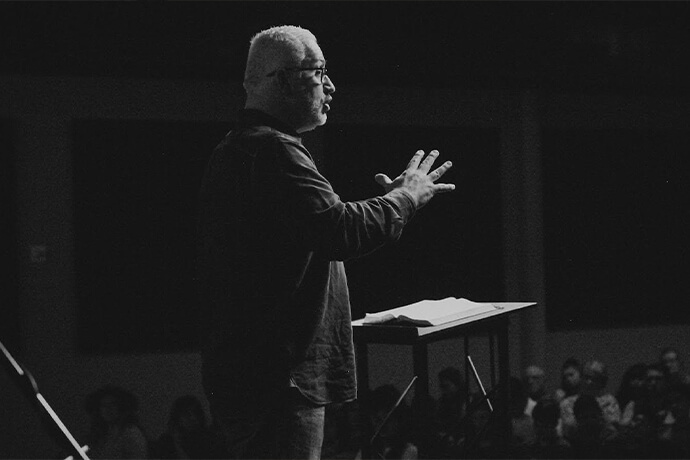 SPEAKERS
SPEAKERS
 TOPICS
TOPICS
Success begins with pre-event prep. Engage your audience by understanding their needs.

Pre-event preparation is key to giving a successful talk, engaging your audience and ensuring that the audience walks out of your talk with a positive impression. Event preparation doesn't just involve creating your speech notes. You'll need to understand your audience, isolate what they are looking for from you, and then deliver on their expectations. By understanding the audience, you make the rest of the steps involved in giving your talk much easier.
But what exactly is it that you need to understand about your audience? Think about what they care about and what's important to them. Are there any popular misconceptions about the topic you want to give your talk on? When you're preparing for your talk, these are the sort of questions that you should be asking yourself. Various event speakers will have different approaches to preparing for events, but preparing is nonetheless important.
Event based prep goes beyond simply ensuring the venue is booked and that you've sold tickets for your talk. For your talk to be truly successful, you'll need to prepare and plan for that success. The first thing you need to do is write down what kind of questions your audience is likely to ask you. List out these potential questions, and have answers to all these questions ready ahead of time.
This can help you in creating a basic structure for your speech as well. Around the answers you've created to popular questions on your topic, add things that help your talk to flow better. You can add personal anecdotes, motivational stories and even a joke or two. Just ensure that whatever you add, you don't stray from the topic at hand.
At the same time, you'll also need to ensure that your talk has what it takes to hold the attention of your audience. You don't want your audience to get bored or to look at their phones during your talk. This means that you'll need to provide them with useful and interesting information in digestible bits, throughout your talk.
This is why it's not just what you're saying that's important, but also how you're saying it. A monotonous speech will likely make your audiences feel bored. Try to personally engage with the audience through your speech. Leave the floor open to questions, and try to make your talk interesting and relevant.

The importance of preparation can't be understated. More than your event planning skills, what you add to your talk takes precedence. Note that it's important to consider how familiar the audience is likely to be, to the topic at hand. Will you be introducing the audience to a whole new topic? Or will you be communicating your ideas on a certain topic to the audience? If your audience already has an idea of the topic you're talking on, then adding some complex jargon here and there won't hurt your talk.
This is as if you don't have to explain every concept you're talking about, it becomes easier to use jargon and communicate. But if the audience should be completely new to the topic, then consider thinking about avoiding jargon altogether. This is as you'll need to explain every new term you use in your talk. This can draw some people out of your talk, and cause them to lose focus. Throughout your talk, your aim should be to present your ideas in the simplest way possible. Your audience should be able to take in your ideas without thinking the topic is too complex for them to understand.
You should also prepare for the mood of the audience. Are you hosting a serious talk, a motivational session or a fun interactive session? What mood you expect your audience to be in helps you create the tone for your speech. Include in your event planning checklist what tone your talk should take. When you're preparing for an event, remember to think about audience questions as well.

Now that you've used your event planning skills to get this far, there is just one more thing that you should look at. If you are able to understand your audience, then you should also be able to predict what kind of questions they are likely to ask you. Instead of waiting for audience members to ask you questions at the end of your talk, include the answers to common questions within your talk.
This shows that you have thought through your speech, and have considered audience concerns. Try to speak not just intelligently, but also emotionally about the topics that your audience cares about.
After you've given your talk, it's time for you to do your post event evaluation. The importance of post event evaluation can't be understated as it enables you to isolate what was successful about your talk, and where you can improve further. There could be notes that you've gathered on how to make your next talk even better. Now is the time to look at those.
After each talk, remember to evaluate your performance. Think about the frequently asked questions that come to mind, as well as how you can make your next talk even better. With each talk you give, you gain the wisdom needed to give an even better talk the next time around.